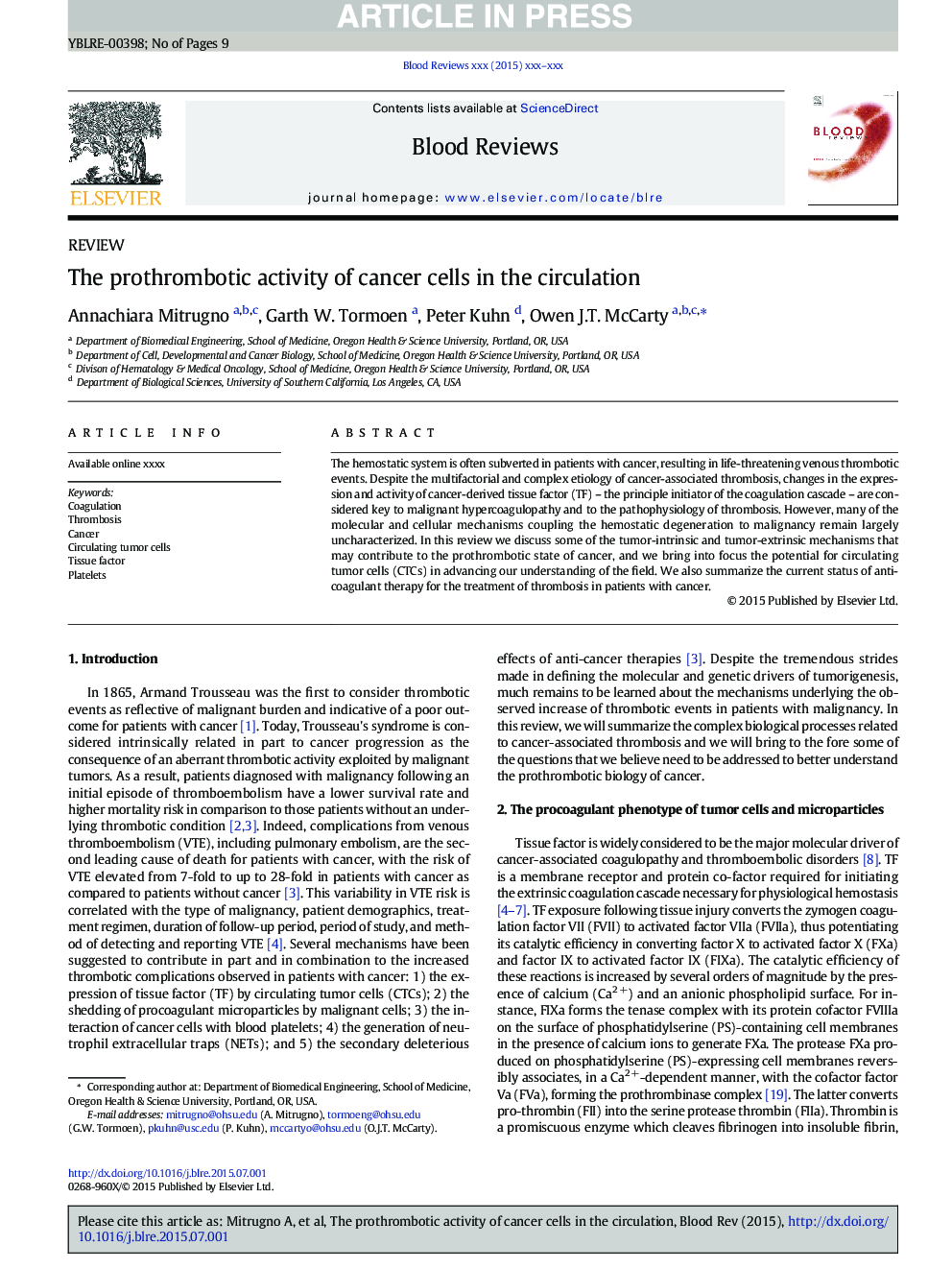| Article ID | Journal | Published Year | Pages | File Type |
|---|---|---|---|---|
| 10895757 | Blood Reviews | 2016 | 9 Pages |
Abstract
The hemostatic system is often subverted in patients with cancer, resulting in life-threatening venous thrombotic events. Despite the multifactorial and complex etiology of cancer-associated thrombosis, changes in the expression and activity of cancer-derived tissue factor (TF) - the principle initiator of the coagulation cascade - are considered key to malignant hypercoagulopathy and to the pathophysiology of thrombosis. However, many of the molecular and cellular mechanisms coupling the hemostatic degeneration to malignancy remain largely uncharacterized. In this review we discuss some of the tumor-intrinsic and tumor-extrinsic mechanisms that may contribute to the prothrombotic state of cancer, and we bring into focus the potential for circulating tumor cells (CTCs) in advancing our understanding of the field. We also summarize the current status of anti-coagulant therapy for the treatment of thrombosis in patients with cancer.
Related Topics
Life Sciences
Biochemistry, Genetics and Molecular Biology
Cancer Research
Authors
Annachiara Mitrugno, Garth W. Tormoen, Peter Kuhn, Owen J.T. McCarty,
